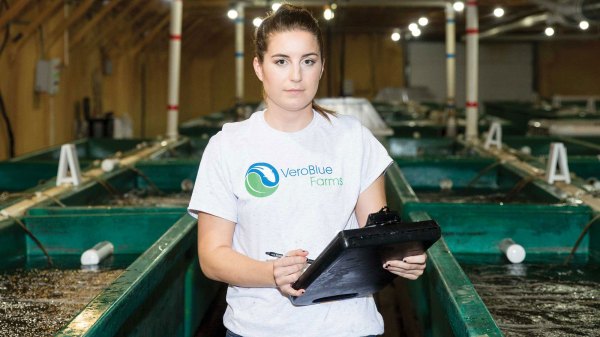Interesting reads
-
-
@jegga said in Interesting reads:
I heard about this guy and I wondered why yanks were unaware of the humble mince and cheese
http://m.nzherald.co.nz/lifestyle/news/article.cfm?c_id=6&objectid=10716170
Well wonder no more
http://m.chicagoreader.com/chicago/mince-pie-the-real-american-pie/Content?oid=1267308
Visited a pie shop in East Boston last year.
Pretty good pies actually! Very popular with the locals too. -
This is interesting, salmon farms here have been called "piggeries in the ocean" for the amount of waste they create and in Norway and Canada the farms have caused outbreaks of lice and diseases that have caused wild salmon to die off. Also if you read up on how prawns and shrimp are farmed in Thailand and India you'd probably never eat them again , particularly as unlike in the states we don't test for Rotonene which is known to cause cancer.
-
Date: May 31, 1889
Location: South Fork, East Conemaugh, and Johnstown, Pennsylvania
Deaths: 2,209
Property damage: US$17 millionBefore hitting the main part of Johnstown, the flood surge hit the Cambria Iron Works at the town of Woodvale, sweeping up railroad cars and barbed wire in its moil. Of Woodvale's 1,100 residents, 314 died in the flood. Boilers exploded when the flood hit the Gautier Wire Works, causing black smoke seen by the Johnstown residents. Miles of its barbed wire became entangled in the debris in the flood waters.
Some 57 minutes after the South Fork Dam collapsed, the flood hit Johnstown. The residents were caught by surprise as the wall of water and debris bore down, traveling at 40 miles per hour (64 km/h) and reaching a height of 60 feet (18 m) in places. Some people, realizing the danger, tried to escape by running towards high ground but most people were hit by the surging floodwater. Many people were crushed by pieces of debris, and others became caught in barbed wire from the wire factory upstream and/or drowned. Those who reached attics, or managed to stay afloat on pieces of floating debris, waited hours for help to arrive.
-
@Frye said in Interesting reads:
@jegga said in Interesting reads:
I heard about this guy and I wondered why yanks were unaware of the humble mince and cheese
http://m.nzherald.co.nz/lifestyle/news/article.cfm?c_id=6&objectid=10716170
Well wonder no more
http://m.chicagoreader.com/chicago/mince-pie-the-real-american-pie/Content?oid=1267308
Visited a pie shop in East Boston last year.
Pretty good pies actually! Very popular with the locals too.I've been there too. Great pies and sausage rolls.
-
http://www.macleans.ca/society/why-americans-have-come-to-worship-their-own-ignorance/
Its about Americans, but it applies world over
We’ve also internalized the idea that everybody needs to go to college, which ended up diluting what colleges can offer. it’s now a mass experience, and college is taking the place of high school, including things like remedial English and math. When it comes to established knowledge, people who have gained a higher education no longer really know that much more than the average citizen. They’ve just stayed in school a little longer than a high school graduate, but they are not necessarily any better-informed or smarter. Forty or 50 years ago, the difference in education and level of awareness about important issues was distinctly different between college- and non-college-educated people. That’s one of the reasons why—this is a hypothesis on my part—the distinction that pollsters normally make between college-educated and non-college-educated respondents isn’t as strong an indicator of differences in voting as it used to be.
-
@nzzp said in Interesting reads:
This was a far better flood
It killed someone, but that's the price you pay for beer

I see your flood and raise you: https://en.wikipedia.org/wiki/Great_Molasses_Flood Six times the size!
-
Pretty sure a few on here are (like me) huge fanms of Iain M Banks?
https://www.1843magazine.com/culture/the-daily/the-novelist-who-inspired-elon-musk
Elon Musk, the world’s most restless entrepreneur, has embarked on yet another venture. Not satisfied with reusable rockets, electric cars, giant batteries, vacuum trains and underground roads, his latest firm, Neuralink, hopes one day to build a working brain-machine interface (BMI), which would let its user control computers simply by thinking. The idea is not new – scientists have been experimenting with BMIs in labs for years – but Musk’s involvement will sprinkle it with stardust.
As any entrepreneur will tell you, the first thing your product needs is a catchy name. “Brain-machine interface” is a bit clunky, so Musk has plumped instead for “neural lace”, which is short, memorable and glamorous. Science fiction fans will recognise it from the “Culture” novels of Iain M. Banks, a Scottish writer who died in 2013. In those novels, a neural lace is a BMI that is implanted when a person is young. It grows into and around their brain, acting like a souped-up WiFi connection that allows humans to communicate, and commune, with the ultra-advanced artificial intelligences that run the show.
This is not the first time Musk has raided Banks’s work for inspiration. SpaceX, the rocketry firm he founded in 2002, owns two ocean-going barges that serve as mobile landing pads for its rockets. One is called Just Read the Instructions, the other Of Course I Still Love You. Both are named after sentient spaceships in the “Culture” books, all of which have similarly playful names (one warship, which spends most of its time waiting idly to be called up for action, is called the Killing Time.) Musk is not the only “Culture” fan in Silicon Valley. In 2015 Mark Zuckerberg chose “The Player of Games”, the second “Culture” novel, for his fortnightly book club.
Perhaps the books are just light bedtime reading. But perhaps not, because they explore many of the themes that are worrying the tech world at the moment. The Culture is a society in which virtually everyone’s job has been taken by robots. Artificial intelligence (AI) vastly exceeds the organic sort. The spaceships and artificial worlds on which Culture citizens live are run by Minds, machines that are to humans what humans are to ants. (Those worlds are criss-crossed by high-speed trains that run in a vacuum, another technology that Musk is trying to develop). Drones – machines with intelligence roughly equal to that of humans – are citizens just like their biological counterparts.
Musk, like many other people these days, spends a lot of time thinking about AI and where it might lead. In 2015 he helped found Open AI, a non-profit foundation that explores how best to ensure that AI ends up serving humans, rather than displacing them. Banks's novels, some of which are 30 years old, take the idea of machine intelligence just as seriously. Killing a machine is as grave a crime as killing a biological person; the relevant moral metric is the capacity for suffering, not the stuff of which a given intelligence is made. He gives his machine characters complicated inner lives just like those of his biological ones. In one scene in “Consider Phlebas”, the first Culture novel, a human mountain-climber brings a drone some flowers from a remote outcrop as a gift; the drone reflects on how touched it is by the gesture, and how it would die of shame if that sentimentality became widely known.
To self-doubting tech lords, the series is a reassuring tonic. The Culture is a utopia in which the promise of AI has been realised and its pitfalls avoided. The Minds are mostly benevolent gods who ensure that both humans and drones are as happy, safe and fulfilled as possible. Dignity is no longer tied up with work. Nor is survival, for his machine-run economy generates an almost inexhaustible material abundance (a group of modern left-wing economists have dubbed such a state of affairs “fully automated luxury communism”). With no need to work to survive, humans – who, thanks to advances in biology, can switch sex at will and live to be hundreds of years old – are free to do whatever they like, whether that is climb mountains, enjoy games, or just indulge in a great deal of drugged-up, sex-fuelled hedonism.
But Banks is too talented and cynical a writer to make his utopia perfect. Many of his protagonists are dissatisfied with an easy life, and find themselves on the fringes of the Culture’s perfect society. Liberated from work, the Culture has become obsessed instead with fashion, fads and the minutiae of social hierarchies. And AI gods, even benevolent ones, come with uncomfortable implications: Banks is teasingly unclear whether humans (and drones) are anything more than indulged pets for the Minds that really run the show.
Musk has voiced similar concerns. “We’ll be like a pet labrador if we’re lucky,” he said in 2015, when asked about the relationship humans might have with super-intelligent machines. Similar worries are the ultimate reason behind Neuralink. Only a technologically-augmented human brain, Musk thinks, stands any chance of being able to keep pace with the artificial sort, and Neuralink is the first step in building such a brain.
All of this may seem impossibly grandiose. Worries about hyper-intelligent computers keeping humans as pets can seem almost insultingly theoretical in a world where billions of people do not even have reliable electricity. But science fiction is a literature of ideas, and, as John Maynard Keynes once remarked, the world is ruled by little else. The “Culture” series is not a blueprint for the future of the human race. It is high-concept knockabout space opera, with all the technological handwaving (faster-than-light travel, mega-structures the size of planets) that implies. But it is space opera that anticipates some of the challenges that technology is beginning to pose in the real world, and which are of great interest to the sort of people who are building the future in which we will all soon have to live. If you want to understand the thinking of today’s tech titans, Banks’s novels are a good place to start.
-
@NTA said in Interesting reads:
A primer on recent happenings in Australian Conservative Politics:
That's brilliantly written. Thanks for sharing that Nick.
-
@antipodean I've seen his stuff occasionally and its pretty good. My favourite bit was:
It was Paul Valéry who called Ancient Greece “the most beautiful invention of the modern age”, and it should be a redundancy to acknowledge that most of the enslaved and benighted populations of the ancient world had no freedoms at all, let alone freedom of speech. Few women had public lives, and none had political lives. Oratory and rhetoric were confined to an elite class of citizens, who could still be put to death, torture or exile for the things that they said. It’s telling that two famous speech-makers of this time, Socrates and Cicero, were both killed for their words. So why bother? Why keep up this pretence? Because you can only pretend free speech is under attack like “never before” if the image of “before” is bowdlerised to the point of pure fantasy. And because the West must meet a unitary definition against its great enemy, Islam.
Here is the abridged version: empiricism and freedom of speech were invented in the ancient world, and fought a long battle against groupthink among the governments, fellow citizens and the church. Eventually, heretics like Galileo won out, and the Renaissance happened. Western civilisation was born, or maybe reborn, and so were Judeo-Christian values, or “secular Christian values”. (You can insert any number of other contradictory dualisms here.) Then the Enlightenment happened, and these freedoms were codified into the Westminster system, the American Constitution and various other things not really identified. There was some science. And throughout all this time, Muslims tried to conquer Europe with their weaponised intolerance, and were repulsed everywhere from Tours to Vienna. (Malcolm Roberts even managed to add the Anzac landings at Gallipoli to this list.) Now multiculturalism has made the West weak and feckless, and Muslims can conquer Europe simply by having babies.
This strange image of the past can never explain why Rome had an emperor called Philip the Arab, or why the Jews of Spain betrayed their cities to Moorish invaders, or why Italian migrants to Australia were greeted with race riots, or why Protestants in Amsterdam would not marry their Catholics, or why the founding fathers were deists or why in the face of existential threat Christians allied with Muslims against fellow Christians all the time. In fact, this bogus history can’t explain the West at all, and those who believe it end up enacting perverse forms of revanchism, aimed at a non-existent past.
-
My favourite part was this particularly the last sentence, if god exists he has a good sense of humour.
One Nation candidates cottoned on. Margaret Dodd, running for the seat of Scarborough, quit the party just 24 hours before the poll. In a statement she said that “PHON in my eyes are not about the WA people and their future but for personal power for Senator Hanson, who will do and say anything to achieve her goal at whatever cost”. “Saying anything” had extended to mid-campaign endorsements of both Vladimir Putin and a pre-vaccination “test” no one had heard of, off-piste pronouncements that had left even the disaffected in the electorate bewildered. The protest vote found a home elsewhere, and, in a karmic footnote, a federal One Nation senator came down with measles.
-
The same guy who authored the article above tweeted a link to this one on Mike Judge:
-
A fair few times on here people have given their view re Roman Polanski, this is a the AMA (Ask Me Anything) by the victim from Reddit the other day. If it (the Polanski case) is one you like to go off on, its a good read.
-
A surprisingly high number of folks on here bring it up, and categorically state an opinion on it. So I'm assuming have an interst in the case.
So having the actual victim explain her position is a good read. Like anything on here its only a good read if it interests you, for me it had some interesting points about her life view, her view of the judicial process etc.
If its not interesting to you, I'd suggest you don't read it.


 Johnstown Flood - Wikipedia
Johnstown Flood - Wikipedia


